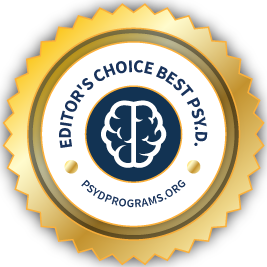Chestnut Hill College has developed undergraduate and graduate partnerships with Jefferson School of Health Professions of Thomas Jefferson University. These partnerships offer students dual degree programs leading to a Bachelor of Science in Biology from Chestnut Hill College and a Bachelor of Science in Medical Laboratory Sciences and Biotechnology from Jefferson School of Health Professions. While the dual degree program can be completed in four years, students also have the opportunity to earn both bachelor’s and master’s degrees in Biotechnology, Cytotechnology or Medical Laboratory Science in five years. Students will spend the first three years of the program at Chestnut Hill. During those three years students will follow a specific healthcare/biomedical academic tract that will include prerequisite work needed to proceed to Jefferson College of Health Professions for the final year of a coursework for the bachelor’s degree or for two years of coursework for the master’s degree.
What is Medical Laboratory Sciences & Biotechnology?
Biotechnology: Biotechs work with RNA, DNA and proteins in academic research laboratories, the pharmaceutical industry, forensic DNA testing laboratories or molecular analysis. They use information obtained at the molecular level to study and develop new therapeutic, diagnostic and environmental products and services.
Cytotechnology/Cell Sciences: Cytotechs evaluate cell specimens, detect, interpret and report the presence or absence of malignant cells (cancer), precancerous changes, infections, inflammatory patterns and treatment-related conditions. Medical Laboratory Sciences: Medical Laboratory Scientists perform chemical, hematological, immunological, microscopic and microbiological tests for the diagnosis and monitoring of diseases.
Why study Medical Laboratory Sciences & Biotechnology?
Healthcare breakthroughs begin in the laboratory, and Laboratory Scientists are the people who refine lab methods and conduct tests that keep people healthy, prevent disease and diagnose problems. The need for well-trained, flexible and creative Laboratory Scientists will continue well into the future. There’s never been a better time to start your career as a Laboratory Expert. Jobs are plentiful all across the country, and positions in clinical and research labs are expected to grow by 40% over the next 10 years.
Clinical Experience
Clinical practicums are the real world training aspects of our programs, offering students four different placements in clinical and research laboratories at prestigious hospitals, clinics and laboratories in and outside the tri-state area. Clinical site can include commercial laboratories, community hospital and medical center laboratories, biotechnology and pharmaceutical industry labs, and academic research labs.
Some popular sites for clinical practicums are:
- Thomas Jefferson University Hospital
- Main Line Clinical Laboratories
- Kimmel Cancer Center of Thomas Jefferson University
- QuestDiagnostics laboratories
- Cooper Hospital-University Medical Center
Admission Requirements
High school students
- SAT total score of 1650 or higher
- Cumulative high school GPA of 3.2 or higher
- Interview
Current Chestnut Hill College students
- Total earned credits hours 30 or less
- Cumulative grade point average of 3.3 or higher
- A grade of ‘C’ or better in all prerequisite courses for the programs at TJU
- Interview
Application Requirements
High school students
- Submit a completed regular undergraduate Chestnut Hill College admissions application by December 15
- Official high school transcripts
- Official SAT I test scores
- Essay
- Activities Resume
Current Chestnut Hill College students
- Submit a Jefferson School of Health Professions application for admission with an endorsement/letter of recommendation from a Chestnut Hill College.
- Interview





